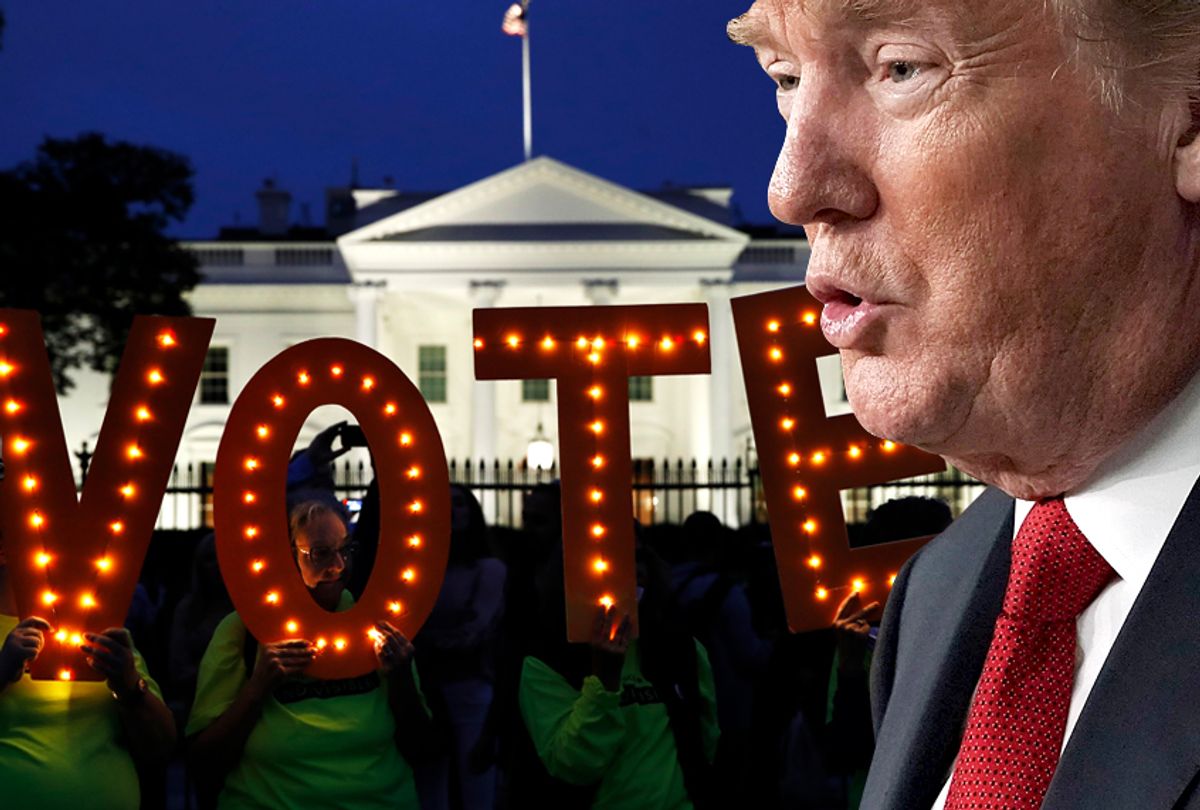Traditionally, the party which controls the White House during a midterm election can expect to suffer from dampened voter enthusiasm and a consequent decline in turnout. If early reports about the 2018 midterm elections are reliable, however, that is not proving to be the case this year.
There are at least seven closely watched states that have seen Republican turnout surpass Democratic turnout during the early voting stage, according to data by TargetSmart that was later independently verified by NBC News Data Analytics Lab. Registered Republicans outnumbered Democrats by 44 percent to 33 percent in Arizona, by 44 percent to 38 percent in Florida, by 52 percent to 43 percent in Georgia, by 51 percent to 39 percent in Indiana, by 46 percent to 29 percent in Montana, by 63 percent to 30 percent in Tennessee and by 53 percent to 43 percent in Texas. The survey found only one exception among the eight states that it reviewed, Nevada.
On the other hand, in Nevada — where Republican Sen. Dean Heller is up for re-election in a close race against Democratic Rep. Jacky Rosen — 45 percent of early voters had a Democratic affiliation, compared with 38 percent who had a Republican affiliation and 18 percent who were not affiliated with either party.
Ironically, the fact that Republicans are doing so well in early voting undercuts the rationale behind recent efforts to discourage it. In a tweet posted last week, President Donald Trump issued a threat that seemed intended to intimidate potential early voters, writing that "all levels of government and Law Enforcement are watching carefully for VOTER FRAUD, including during EARLY VOTING. Cheat at your own peril. Violators will be subject to maximum penalties, both civil and criminal."
The news comes as early voter turnout continues to break records in state after state. Georgia had 69,049 people show up to the polls on Monday, compared to only 20,898 during the 2014 midterm elections. Tennessee had at least 281,000 people turn out to vote in the first three days of early voting last week, which was a significant increase from their midterm voting numbers in 2010 and 2014.
The early voting trends aren't the only bad electoral news to afflict Democrats recently. While Democrats had hoped to take the Senate from the Republicans, they are now behind in the North Dakota election (where they have an incumbent, Sen. Heidi Heitkamp), in the Missouri election (where another incumbent, Sen. Claire McCaskill, has been variously either tied with or behind her main opponent) and in the Florida election (where incumbent Sen. Bill Nelson is behind the Republican candidate, Gov. Rick Scott). Democrats are also trailing in states that they had viewed as pickup opportunities including Texas (where Democrat Beto O'Rourke is behind Republican incumbent Ted Cruz), Nevada (where Republican incumbent Dean Heller is ahead of Jacky Rosen) and Tennessee (where Republican Marsha Blackburn is ahead of Democrat Phil Bredesen). In Arizona, Democrat Krysten Sinema and Republican Martha McSally have flipped back and forth in the polls.



Shares